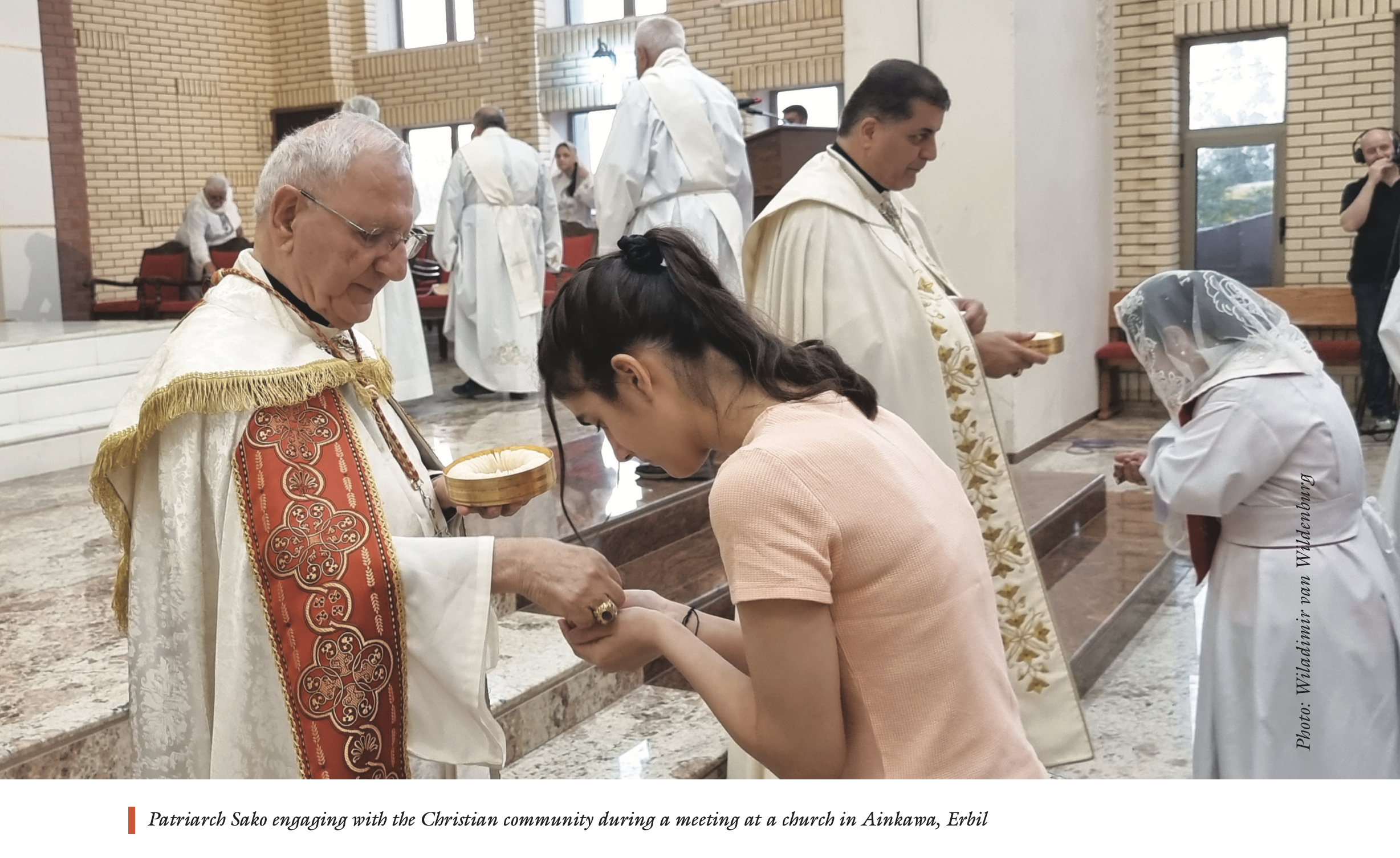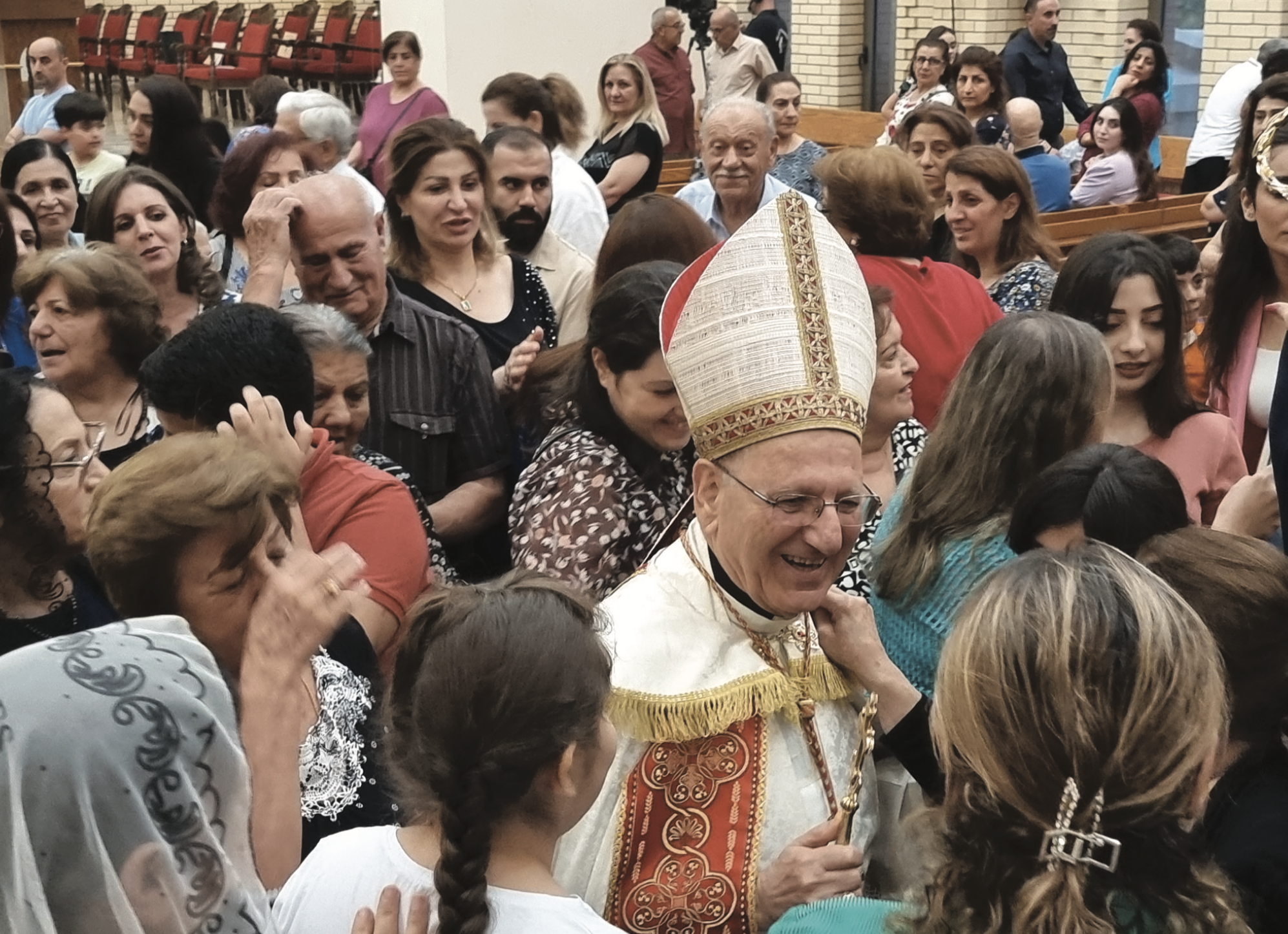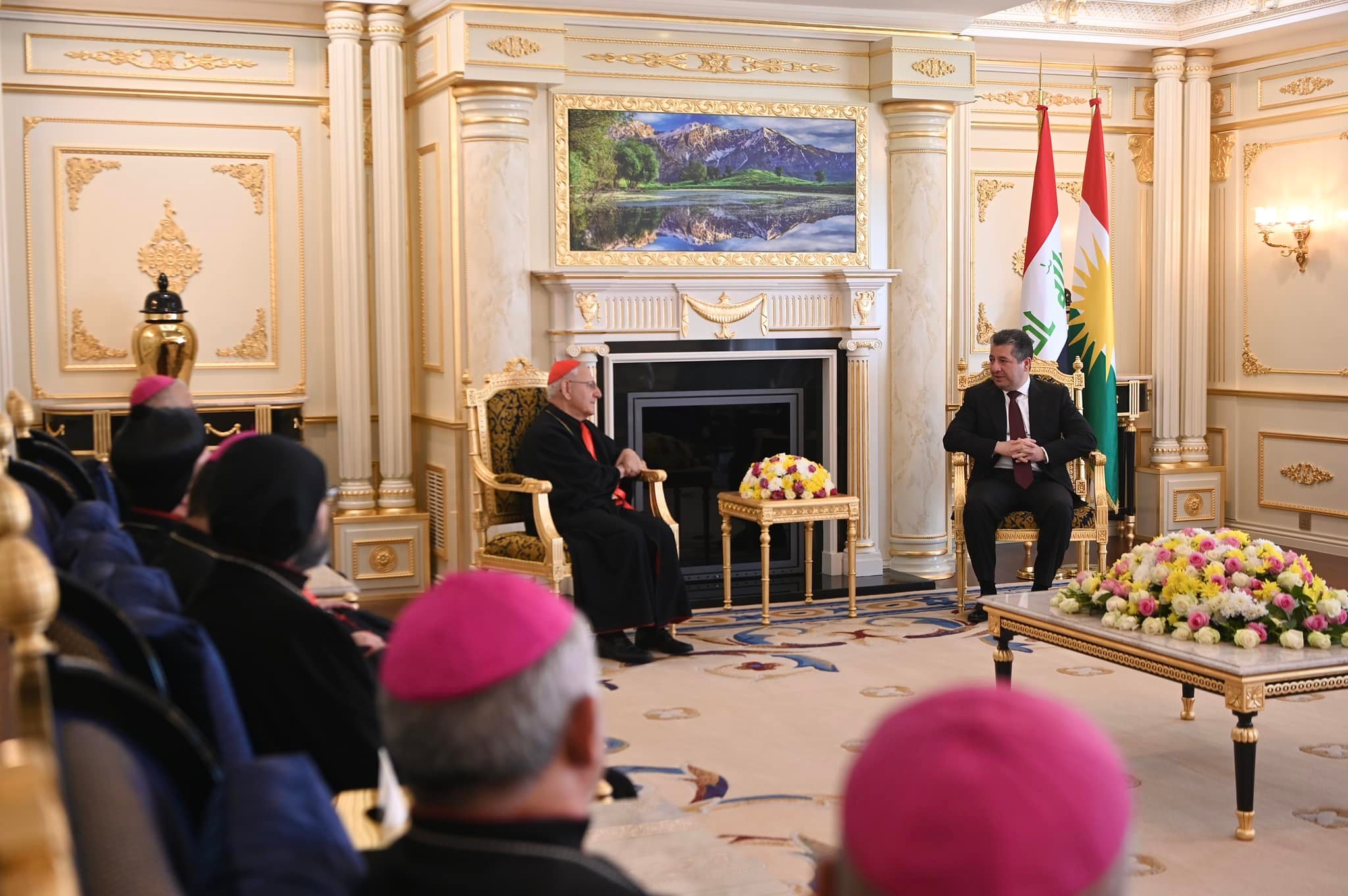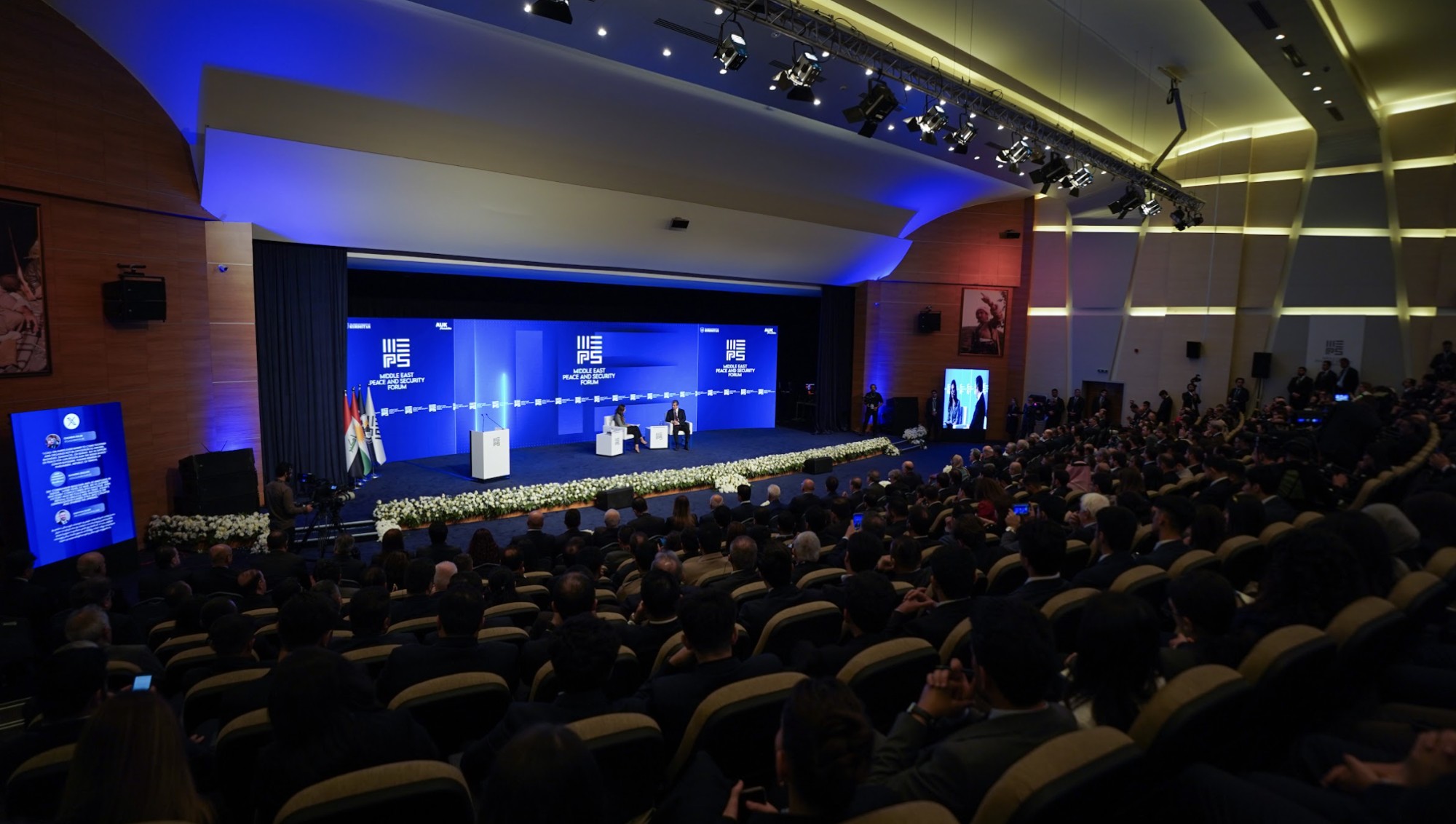On July 21, Kurdistan Regional Government (KRG) Prime Minister Masrour Barzani warmly welcomed the Chaldean Patriarch Louis Raphael Sako to Erbil, “the capital of peaceful coexistence for all religions.”
“The Kurdistan Region and the alchemy of coexistence that thrives here are sources of pride to us all. We condemn the treatment directed towards the Patriarch,” PM Masrour Barzani tweeted.
On July 12, Iraqi President Abdul Latif Rashid revoked Decree 147, an executive order issued by former Iraqi President Jalal Talabani in 2013 that had recognized the appointment of Cardinal Sako as the head (patriarch) of the Chaldean Catholic Church, arguing that the appointment was unconstitutional.
“This decree was issued by the former Iraqi President Jalal Talabani in 2013 after the election of his beatitude the Patriarch,” Ano Jawhar Abdoka, KRG Minister of Transportation and Communications and Representative of Christians told online new platform White House in Arabic.
“This decision taken by the Iraqi president will weaken the legal status of the patriarch, especially upon the Chaldean church properties, and threaten the patriarch’s status in the Iraqi community. These decrees were issued since the time of the Abbasid Caliphate, the Ottoman Empire, the Kingdom of Iraq, and the Iraqi Republic in 1958 and until the present.”
Following his arrival in Erbil in late July, the Chaldean Patriarch met with several senior Kurdish leaders, including KRG President Nechirvan Barzani and Kurdistan Democratic Party (KDP) President Masoud Barzani, who expressed hope that the decision would be revoked and justice would prevail.

Amir Othman, Director of Religious Coexistence Section at the KRG Ministry of Endowment and Religious Affairs, told Kurdistan Chronicle that “the patriarch views the Kurdistan Region as the only place in Iraq that would safeguard Christians and their dignity.”
“The Christians consider the Kurdistan Region a secure haven amidst the political and religious conflicts entangling Iraq, prompting them to choose to relocate there. We, in the Kurdistan Region, promote peaceful coexistence and wish for it to be a haven for every individual, irrespective of their religion.”
During the meeting with President Masoud Barzani, Patriarch Louis Sako expressed gratitude for the respect and appreciation shown by the Kurdistan Region towards religious figures of different faiths and expressed his appreciation for the culture of coexistence in Kurdistan.
Patriarch Louis Sako criticized the decision by Iraqi President Rashid “as a wrong and dangerous decision that harmed Christians and contradicted the principles of coexistence and reconciliation.
Michael Knights, fellow at the Washington Institute for Near East Policies (WINEP), told Kurdistan Chronicle that Kurdistan has since 1992 been a haven for those fleeing repression in Iran, Iraq, Syria, and Turkey. “Kurdish people are famous for their hosting of refugees and now we see the most senior Christian religious figure among them.”
“Kurdistan is only a haven if Kurdish courts and security forces can protect the refugees from being seized and taken to Iraq or other countries. Exiles like Patriarch Sakho have put their full trust in the hospitality and protection of Iraqi Kurds,” Knights added.
The Christian community in Iraq has experienced a drastic decline in numbers, plummeting from 1.5 million before 2003 to a mere 150,000 in 2023, predominantly concentrated in the Kurdistan Region.
Patriarch Sako told Kurdistan Chronicle in an interview after a very busy Sunday Mass in a Church in Ankawa that the decision of the Iraqi president “was wrong” and not “legal”.
“He not only offended the Chaldean community, but all Christians. This is a kind of persecution.”
Churchgoers in Ankawa warmly welcomed the Cardinal Sako, hugging and kissing him. “Here (in Erbil) people are very nice around me, they are around me, celebrating the mass. The church is full. They are very concerned about this decision and are showing me their support,” Sako said.
Sako also said that he was warmly welcomed by officials of the Kurdish government, such as the head of the Kurdistan Democratic Party, Masoud Barzani, president Nechirvan Barzani, PM Masrour Barzani, and other ministers. “They showed me their support and solidarity.

The Chaldean Patriarch called on the international community to push the Iraqi government “to renew my decree.”
On July 18 U.S. State Department spokesperson Matthew Miller also expressed his worries about the harassment of Cardinal Sako. “We look forward to his safe return,” he said.
“We are concerned that the cardinal’s position as a respected leader of the church is under attack from a number of quarters, in particular a militia leader who is sanctioned under the Global Magnitsky Act,” he said in reference to Rayan al-Kildani, the leader of a Christian Popular Mobilization Units (PMU) faction called the Babylon Movement, which was sanctioned by the U.S. government in 2019.
“We have engaged directly with the Iraqi Government to make our concerns clear,” he added.
Rayan al-Kildani, the head of the Babylon Movement and the Iran-backed Babylon Brigades armed group has been attempting to become a leader of the Christians in Iraq. He currently controls four of the five seats reserved for Christian MPs in the Iraqi Parliament after the most recent elections.
He has also extended his influence and control in the Nineveh Plains, causing distress among Christians and leading to protests. He hopes to further expand his reach into the Christian communities in the Kurdistan Region.
Cardinal Sako has consistently voiced his strong disapproval of Rayan al-Kildani, alleging him to be appropriating assets belonging to the Chaldean Church and confiscating land of Christians in the Nineveh Plains, while failing to genuinely represent the Christian community. There are indications that the Iraqi President's choice might have been influenced by al-Kildani's influence.

Cardinal Sako told Kurdistan Chronicle it is clear al-Kildani is behind the Iraqi President’s decision, with the goal “to silence me and also to put the hand on the properties of Christians.”
In May, eleven European countries and PM Masrour Barzani affirmed their support for Cardinal Sako, after he faced such attacks. Therefore, the removal of his position by the Iraqi President was viewed as a move influenced by al-Kildani.
However, the Office of the President of Iraq defended its decision and refused to revoke the decision, arguing this would be unconstitutional, and summoned the U.S. Ambassador in Baghdad.
“The Iraqi Government’s actions against Cardinal Louis Sako, Patriarch of the Chaldean Church, sends a dangerous message about the status of Christians and other religious communities in Iraq,” Nadine Maenza, the President of the International Religious Freedom (IRF) Secretariat, told Kurdistan Chronicle, who recently met Sako in Erbil.
“President Rashid should immediately reinstate Decree 147 and make it clear that all religious communities are welcome and have equal standing in the country.”
She also added that it is encouraging to see that the KRG welcomed “Cardinal Sako to Erbil and offers him support and refuge.”
“If the Patriarch chooses to continue living in Kurdistan, he has every right to do so, and we will provide our full support. The Kurdistan Region is a constitutional part of Iraq, and our policies aim to ensure a secure environment for all individuals seeking to work freely here,” KRG official Amir Othman added. “We hold no conflict with any group in Iraq and strive for enduring peaceful coexistence in our communities.”
In an open letter, Cardinal Sako has vowed to stay in Erbil until the end of Iraqi President Rashid’s term in October 2026.
Wladimir van Wilgenburg is a seasoned reporter and analyst who specializes in Kurdish affairs, and holds a Master's degree in Kurdish studies from Exeter University.

